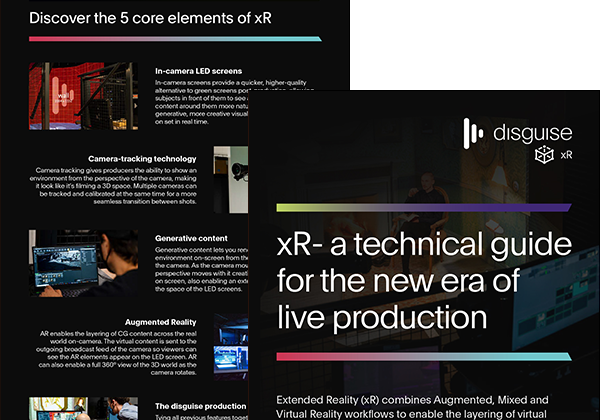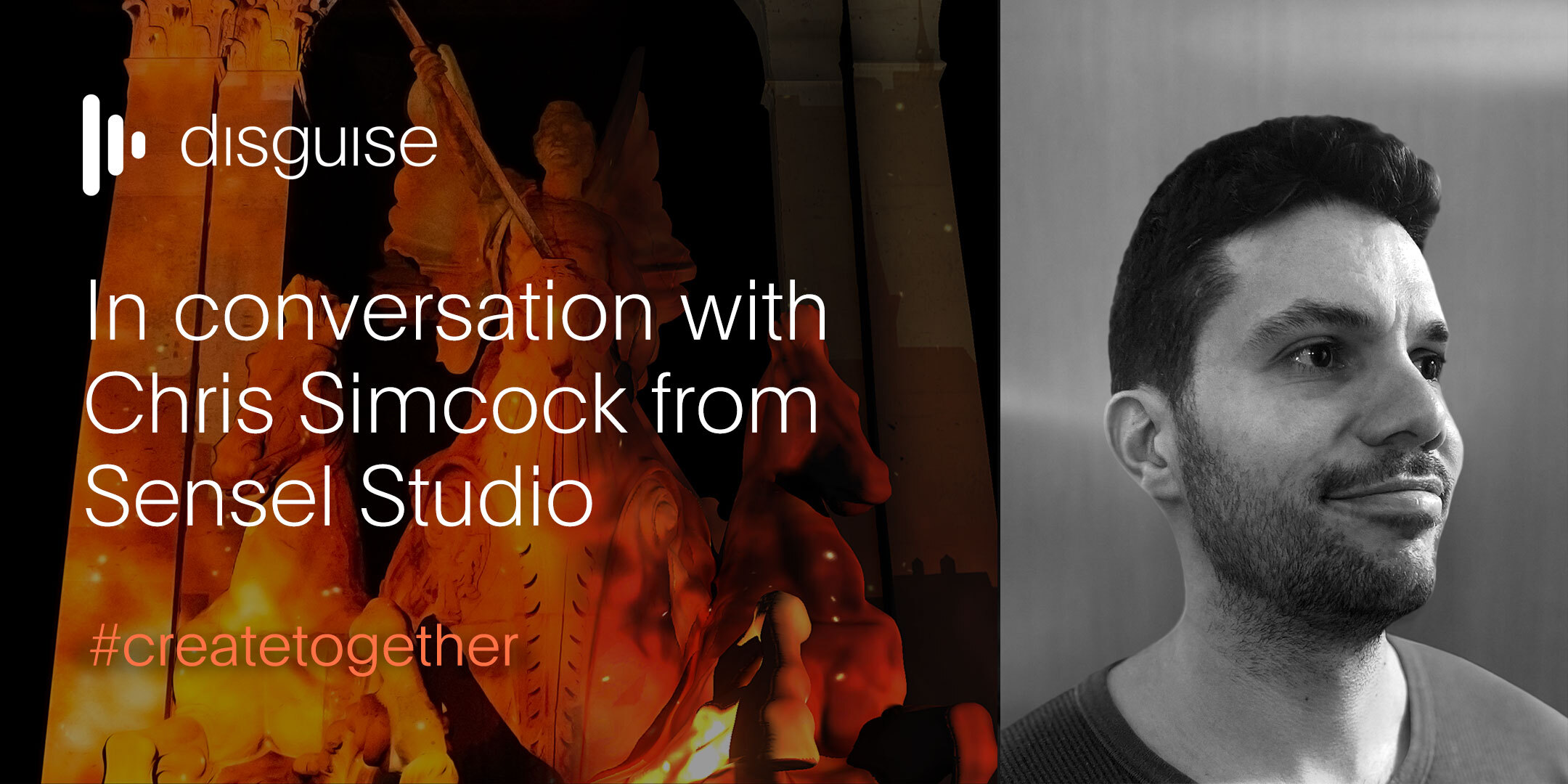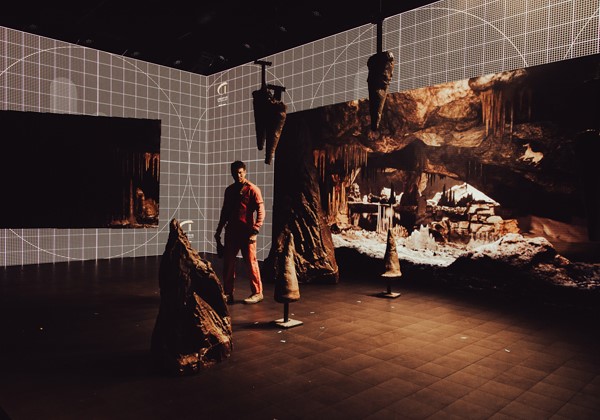
blog 2020 4 min read
In conversation with Chris Simcock from Sensel Studio

Founded by Chris Simcock in 2015, Sensel Studio is a team of designers and architects: creating realities, designing workflows, and producing experiences for creative industries.
Sensel executes incredible projects globally, including feature films for 20th Century Studios, episodic series for Netflix, Faceit eSports leagues, MTV music concerts, and brand launches for Macallan, Nike, and Virgin Media.
As a long time user of disguise, we caught up with Chris about his highlights, challenges, and more…
How did you get started in the industry?
My professional career began shortly after graduating from Goldsmiths, University of London, in BA (Hons) Design in 2010, where I specialised in electronic, interactive, and industrial design. My skills complemented UVA’s portfolio, whom I discovered at the V&A where Volume was exhibiting. In 2010, I visited the PLASA show in London, here I met UVA under the guise of d3, and after an impromptu interview I was granted an internship.
I started as a Special Projects Developer: creating disguise projects, demoing features, and supporting customers. Over time my experience with disguise grew and my role matured into Global Training Manager. The job was demanding but satisfying, enabling me to author the first disguise Training Programme, comprising classes in London, New York, and Los Angeles, and a range of courses from fundamental to advanced level. I enjoyed writing courses because the work was both technical and creative, and I had the freedom to learn specialist workflows.
In hindsight, this provided me with a foundation for designing specialist workflows, a skill I feel is key for executing shows and productions today.
What have been some of your biggest achievements since founding Sensel Studio?
I have experienced many special moments in my career, both as a technician and as a trainer. As a technician, fading up the Burj Khalifa in Dubai, and shaking hands with cinematographers from Steven Spielberg’s Jurassic Park film, remain top of my list. As a trainer, teaching disguise around the world is a big achievement. I feel proud when I see users learn skills around the world, whether in New Delhi, Hong Kong, Mexico City, Los Angeles, New York, or London.
What has been your biggest career challenge to date?
Video screens continue to grow in popularity on-set, but the key challenge is how to design content, which is suitable for playback on-screen, while achieving the desired look in-camera. A giant challenge was in 2016, integrating with the on-site team at Longcross Studios for the filming of Murder On The Orient Express.
Another giant challenge was in 2018, integrating with the on-site team at Troy Studios for the filming of Nightflyers. Every day presented exciting opportunities to design specialist workflows, and to produce believable experiences on-set and in-camera.
You’ve worked with disguise for years now, what are the most memorable projects you have used it on?
A fun memory is my first project with UVA, a laser install for One Dot Zero in Shoreditch. My job was to separate the broken lasers from a box of hundreds. A week later I was fixing an interactive mirror for Massive Attack, playing with DIP switches and javascripts. Here I was first introduced to the disguise software.
What parts of the disguise workflow do you utilise the most and find most valuable in your projects?
100% the 3D mapping engine. I can quickly and easily apply pre-rendered and generative content to objects and volumes, and see a show or production from the point-of-view of a broadcast camera or local audience, weeks or months before going live.
How do you see technology advancing in the industry over the next couple of years?
As xR technology continues to grow in popularity, I see the film industry embracing media servers more openly. The disguise software and hardware plays a critical role when sequencing, mapping, and compositing media, and to produce believable experiences on-set and in-camera.
What does the future look like for Sensel Studio?
Sensel Studio will lead as an xR Workflow Specialist, executing incredible projects for feature films, episodic series, and experiential shows. The studio is launching an online Training Academy, enabling Sensel to serve as both Designer and Educator for creative industries. I am delighted to welcome my twin brother, James Simcock, boosting the studio’s repertoire with backgrounds in architecture and film, in the near future.

